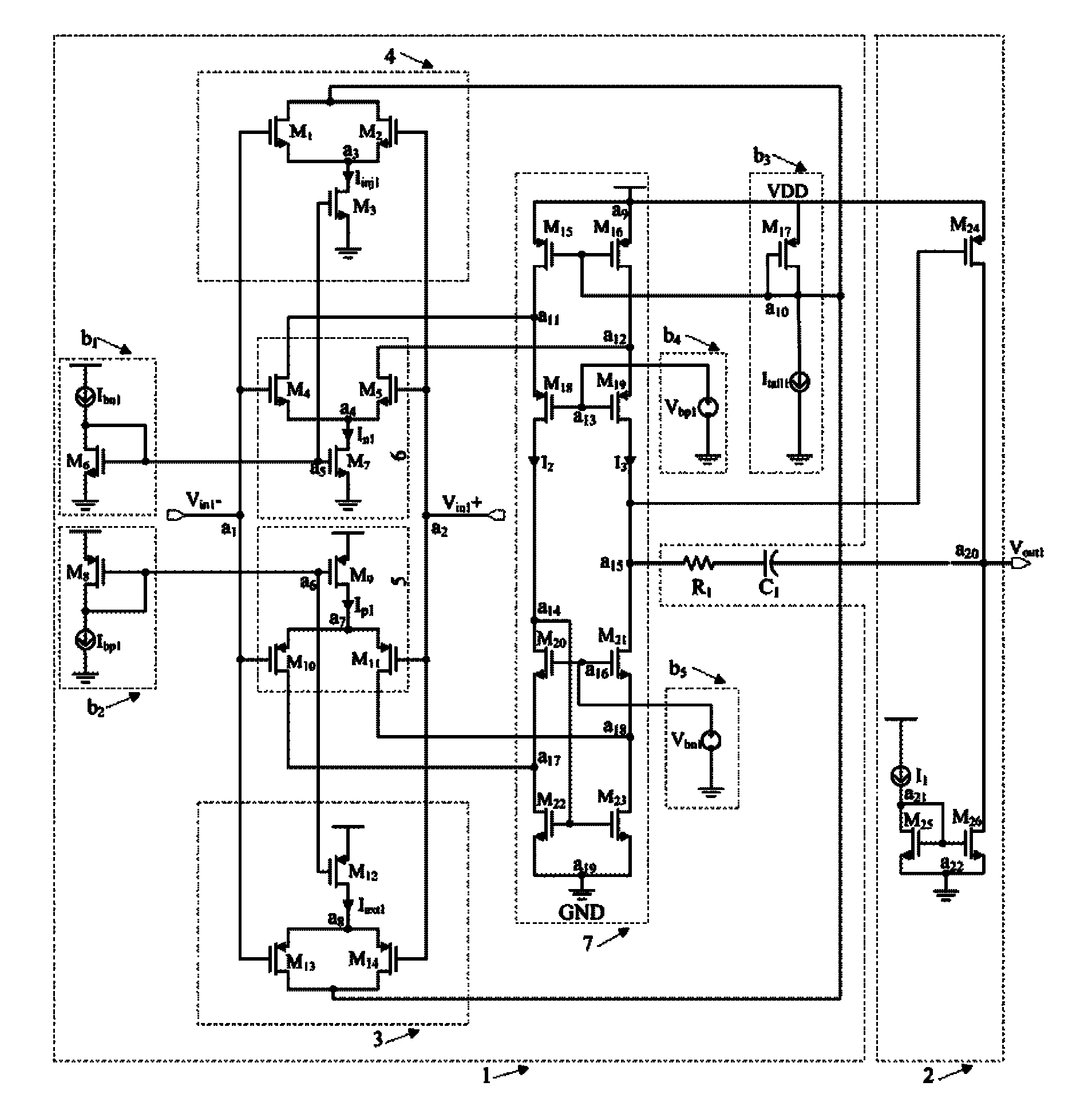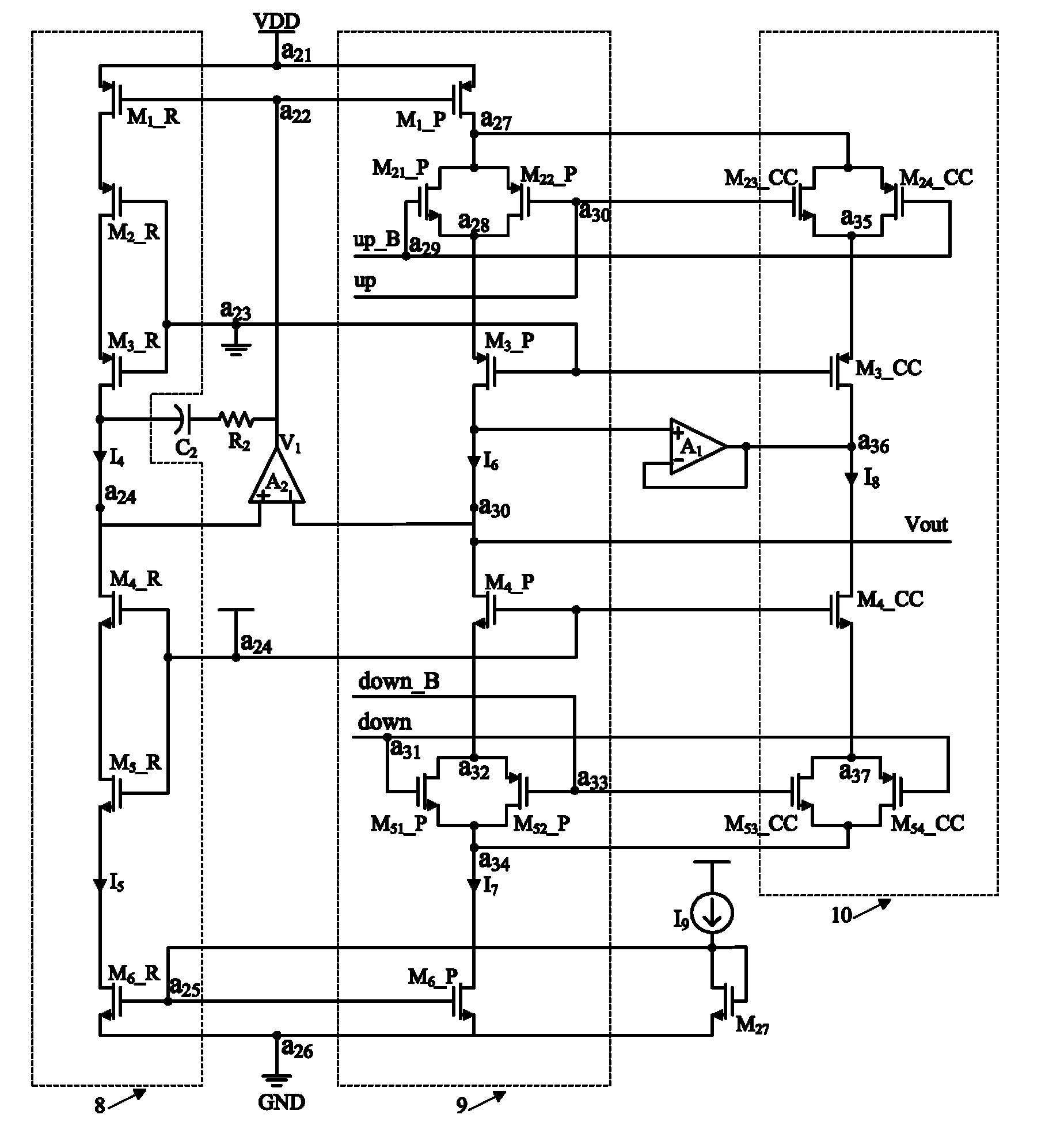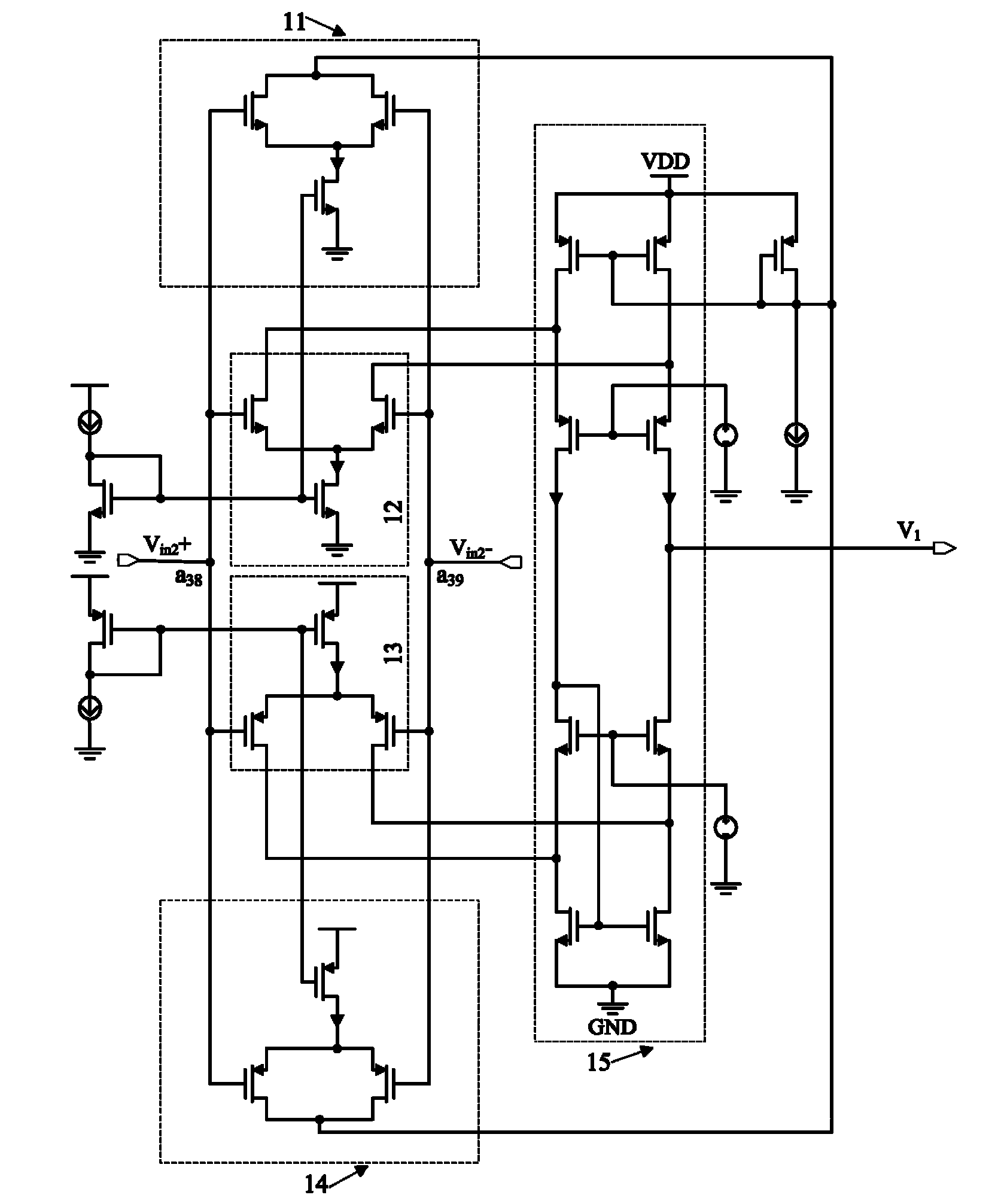Rail-to-rail operational amplifier
An operational amplifier, rail-to-rail technology, applied in the direction of differential amplifiers, DC-coupled DC amplifiers, etc., can solve the problems of poor stability, low bandwidth, and long response time of constant transconductance operational amplifiers, and achieve simple structure and ensure normal operation , the effect of increasing the bandwidth
- Summary
- Abstract
- Description
- Claims
- Application Information
AI Technical Summary
Problems solved by technology
Method used
Image
Examples
Embodiment Construction
[0018] The present invention relates to a rail-to-rail operational amplifier suitable for a charge pump with wide output voltage range and high current matching, which will be further described below with examples in conjunction with the accompanying drawings, but does not constitute a limitation to the present invention. The circuit-level simulation of this example adopts the TSMC0.18um RF CMOS process, and is simulated under the ADE (Advanced Design Environment) environment by using SpectreRF of Cadence Company, and the power supply voltage of the circuit is 1.8V.
[0019] figure 1 It is a transistor-level circuit diagram of the rail-to-rail operational amplifier of the present invention. The op amp consists of three parts, namely the first stage circuit 1 of the op amp, the second stage circuit 2 and the Miller compensation circuit. The first-stage circuit 1 is the core part of the operational amplifier, which includes an N-tube input circuit 6, a P-tube input circuit 5, a...
PUM
 Login to View More
Login to View More Abstract
Description
Claims
Application Information
 Login to View More
Login to View More - R&D
- Intellectual Property
- Life Sciences
- Materials
- Tech Scout
- Unparalleled Data Quality
- Higher Quality Content
- 60% Fewer Hallucinations
Browse by: Latest US Patents, China's latest patents, Technical Efficacy Thesaurus, Application Domain, Technology Topic, Popular Technical Reports.
© 2025 PatSnap. All rights reserved.Legal|Privacy policy|Modern Slavery Act Transparency Statement|Sitemap|About US| Contact US: help@patsnap.com



